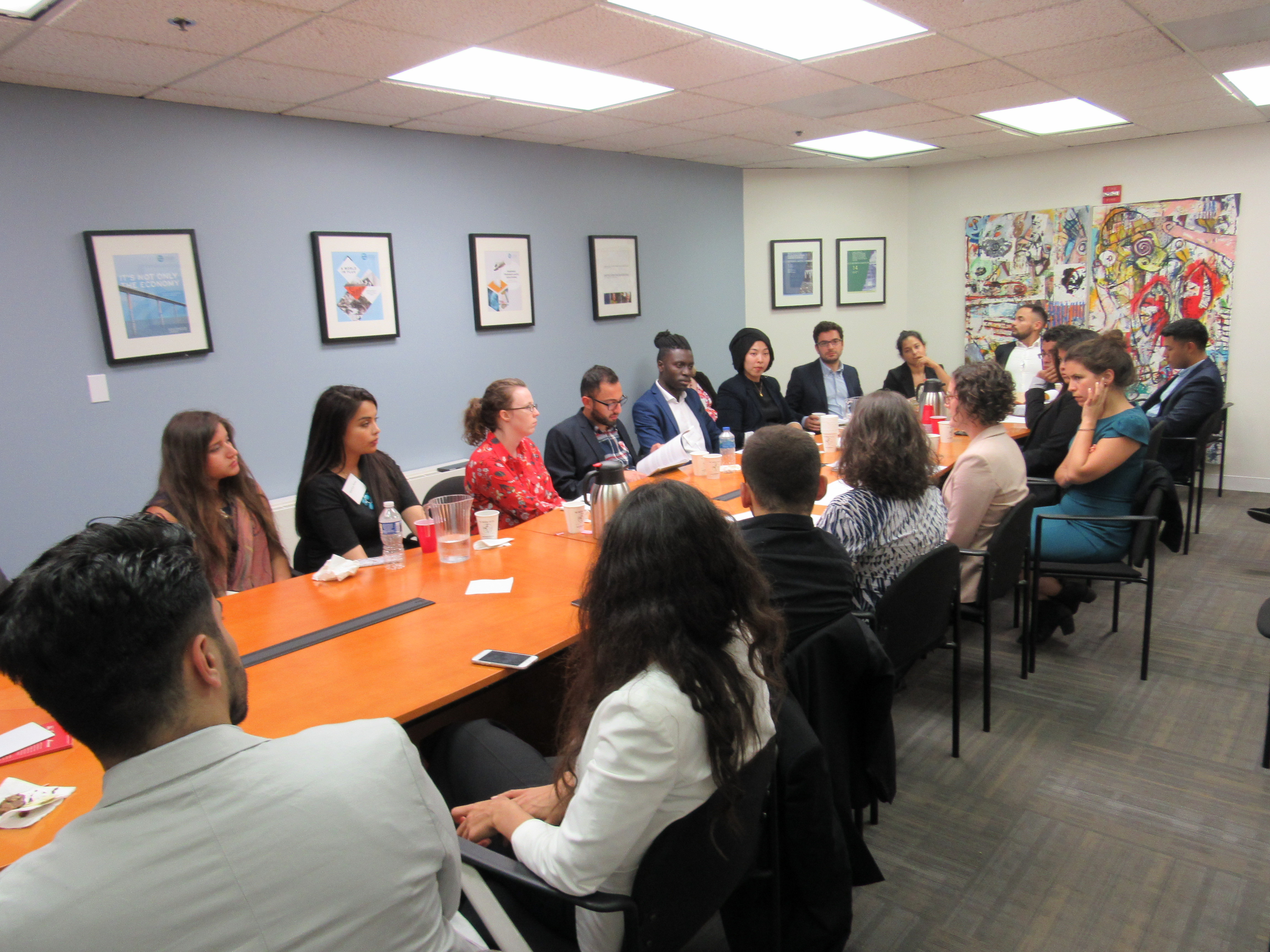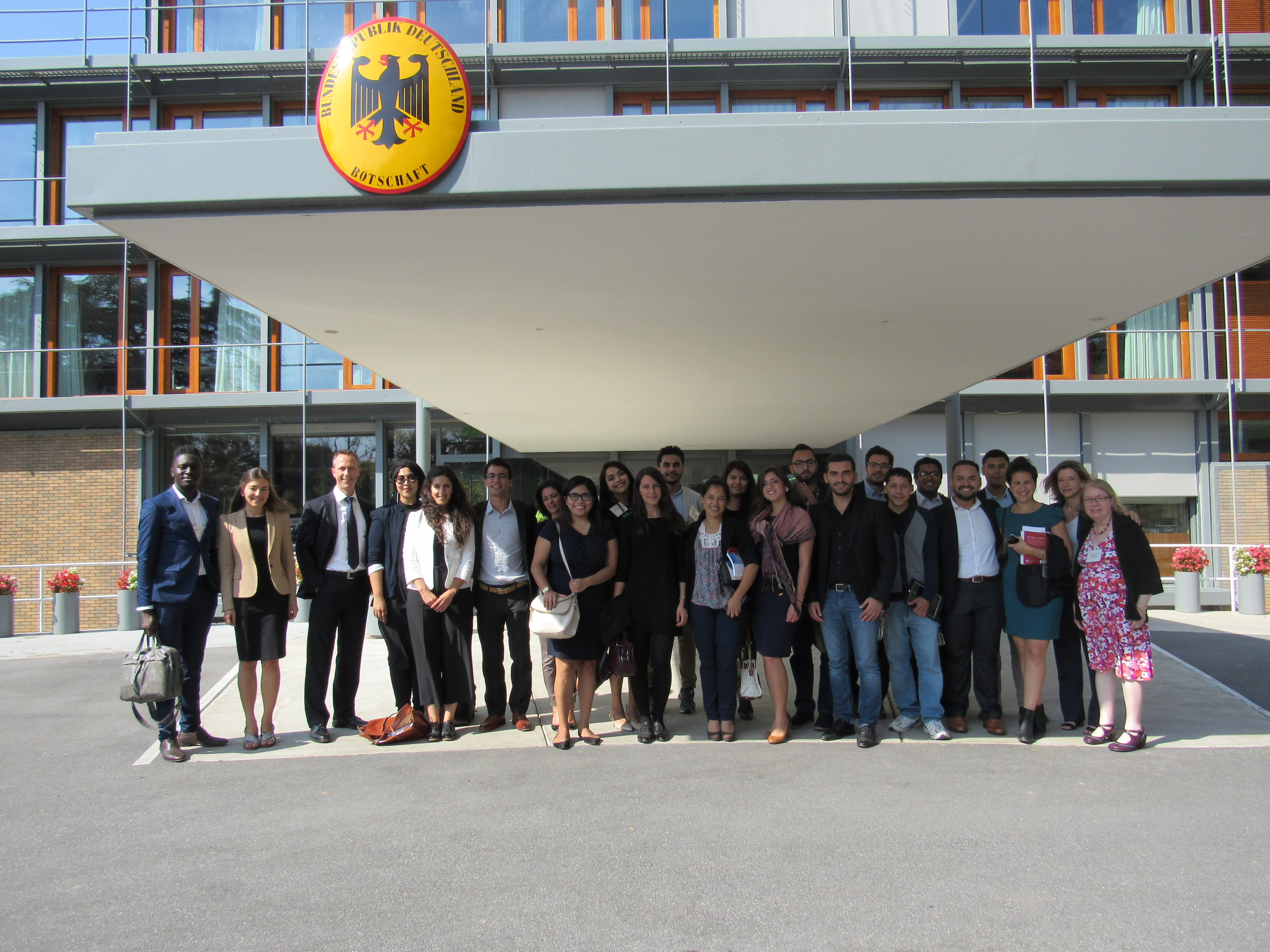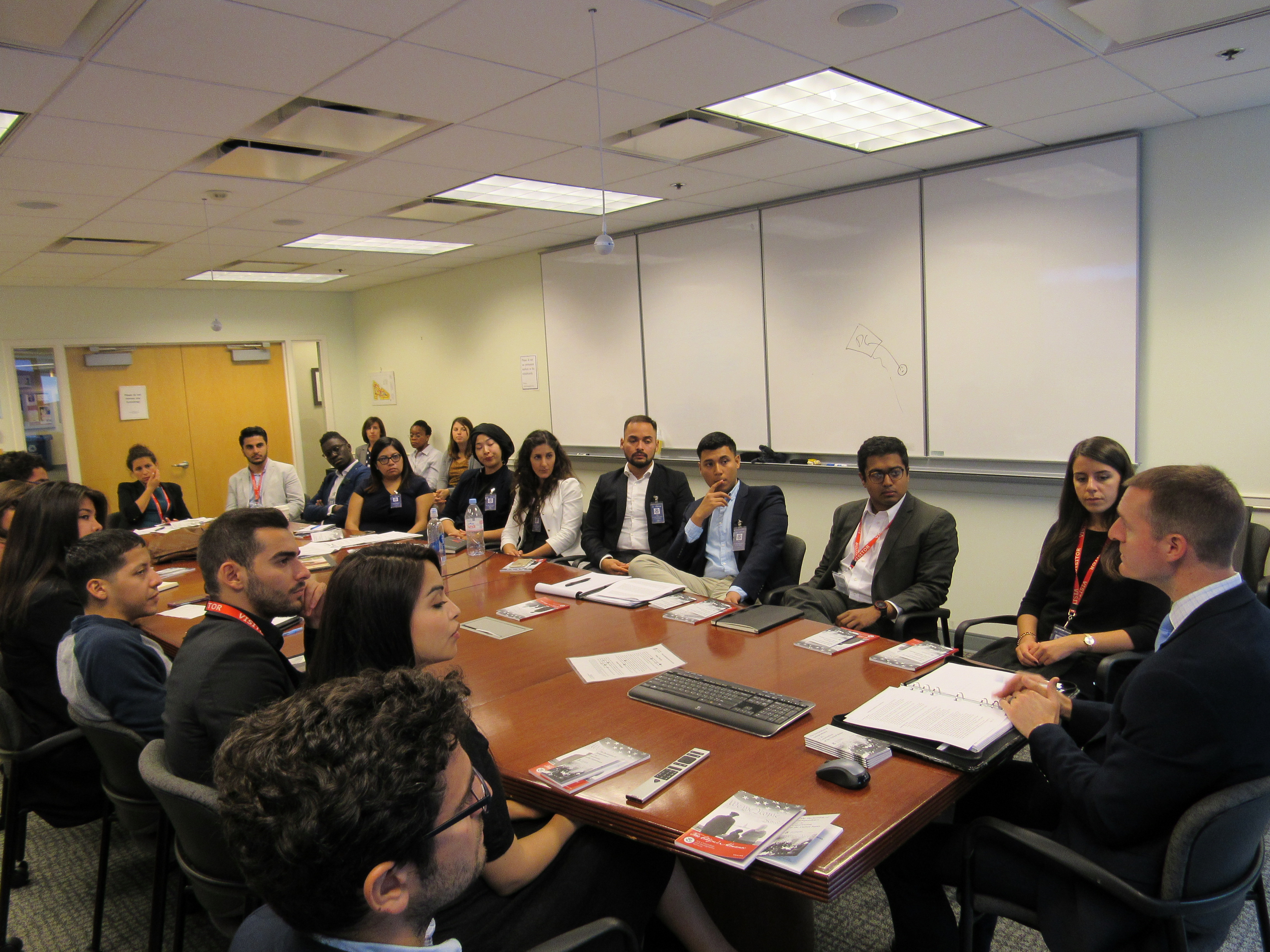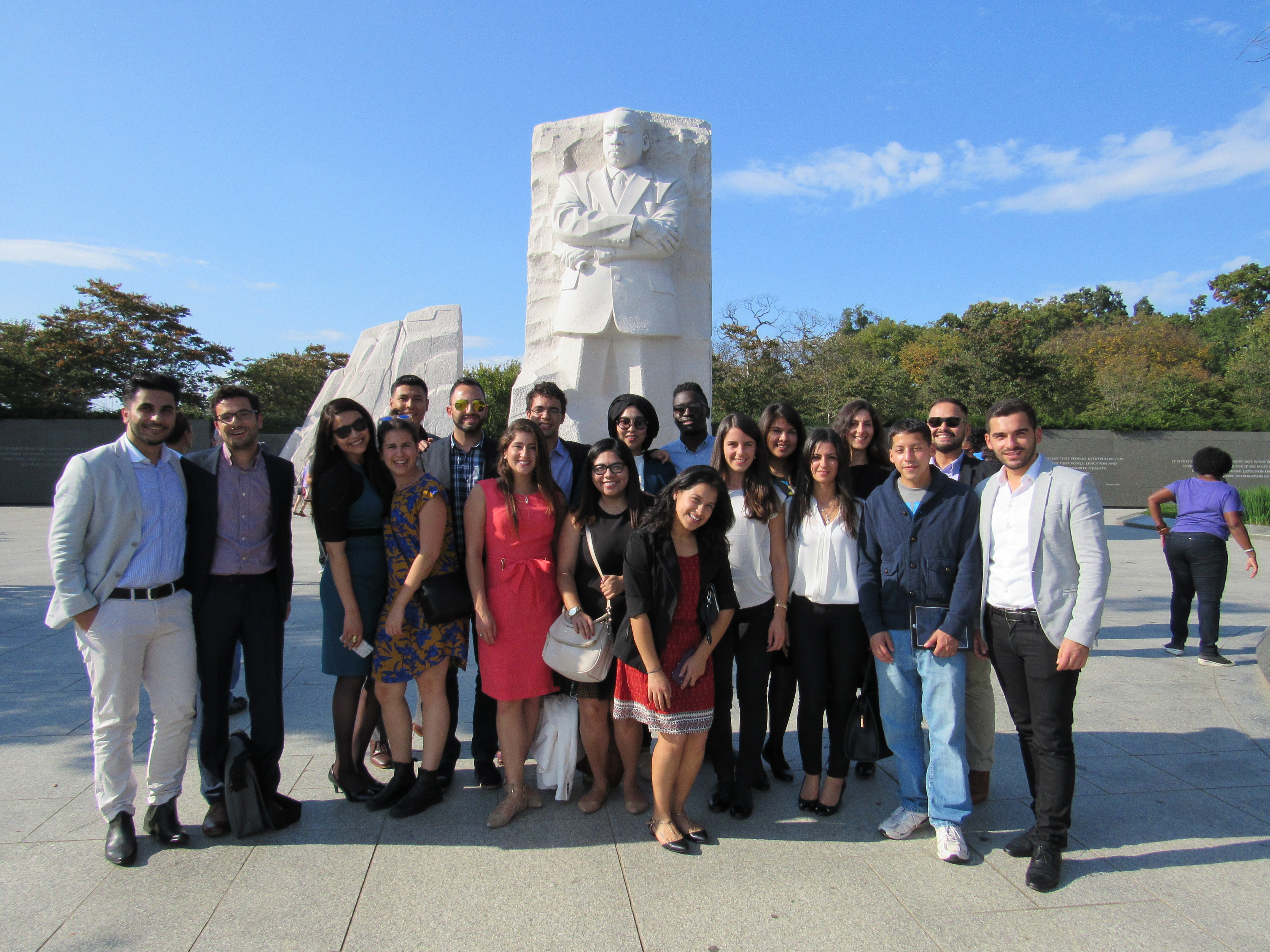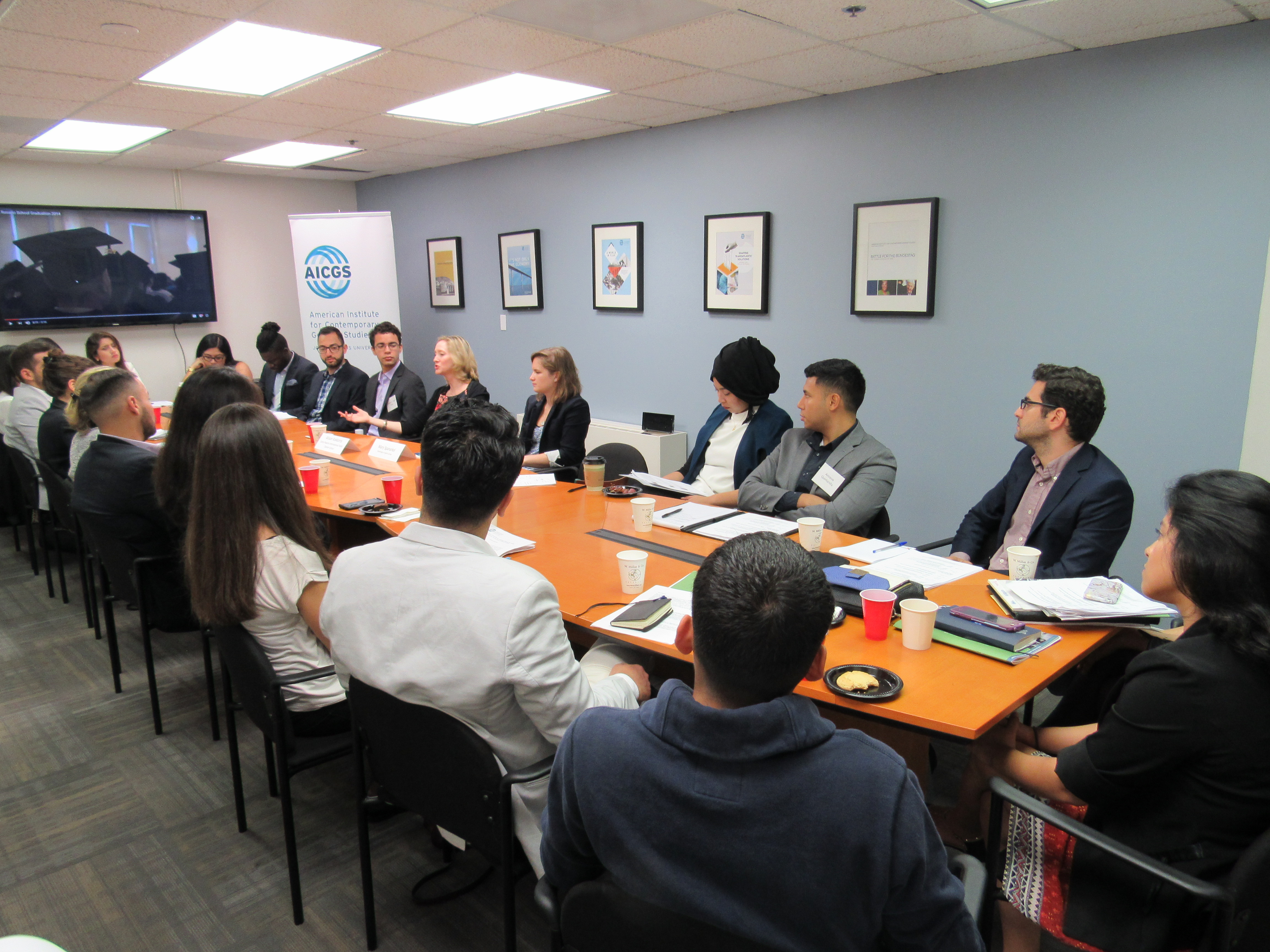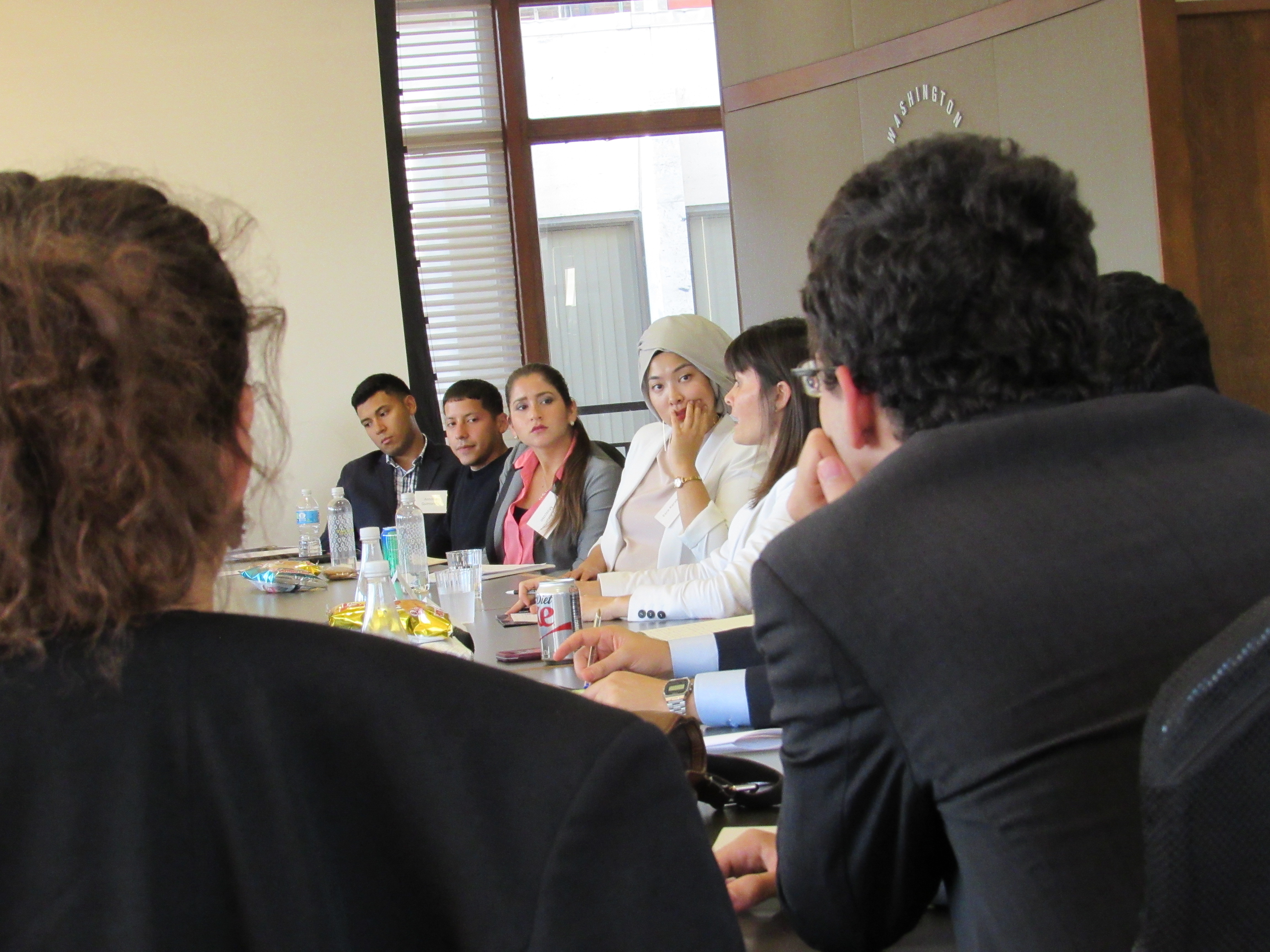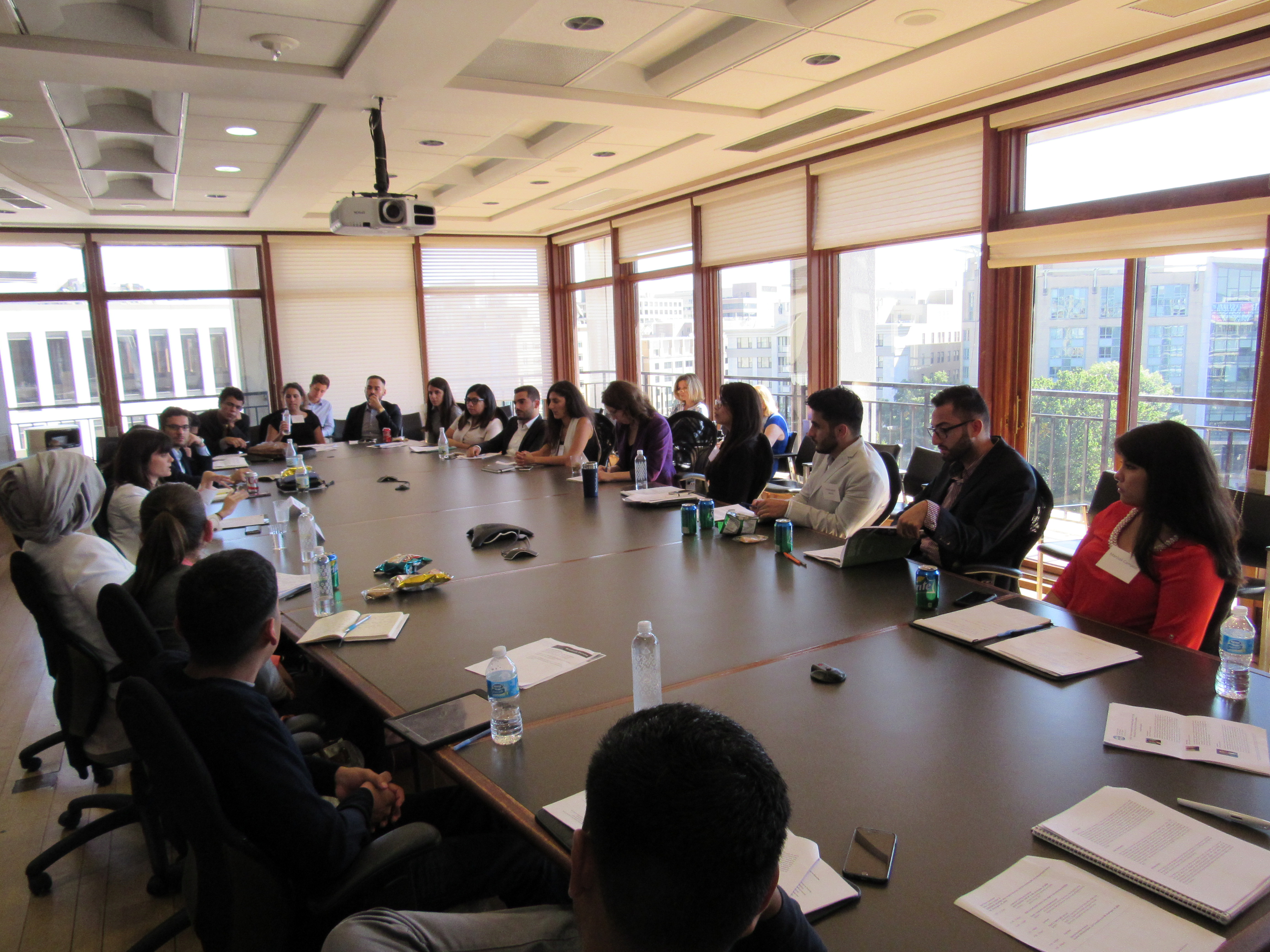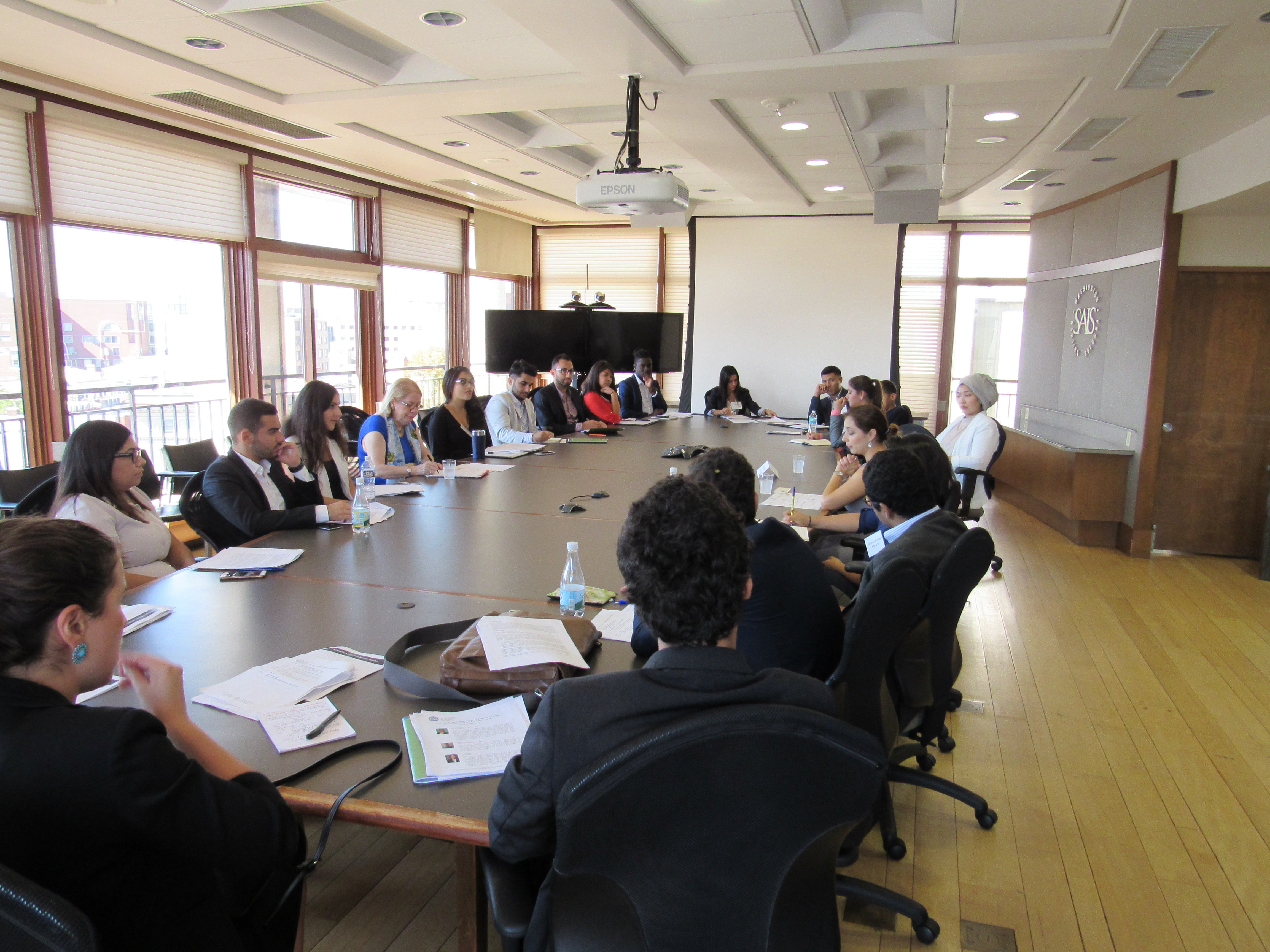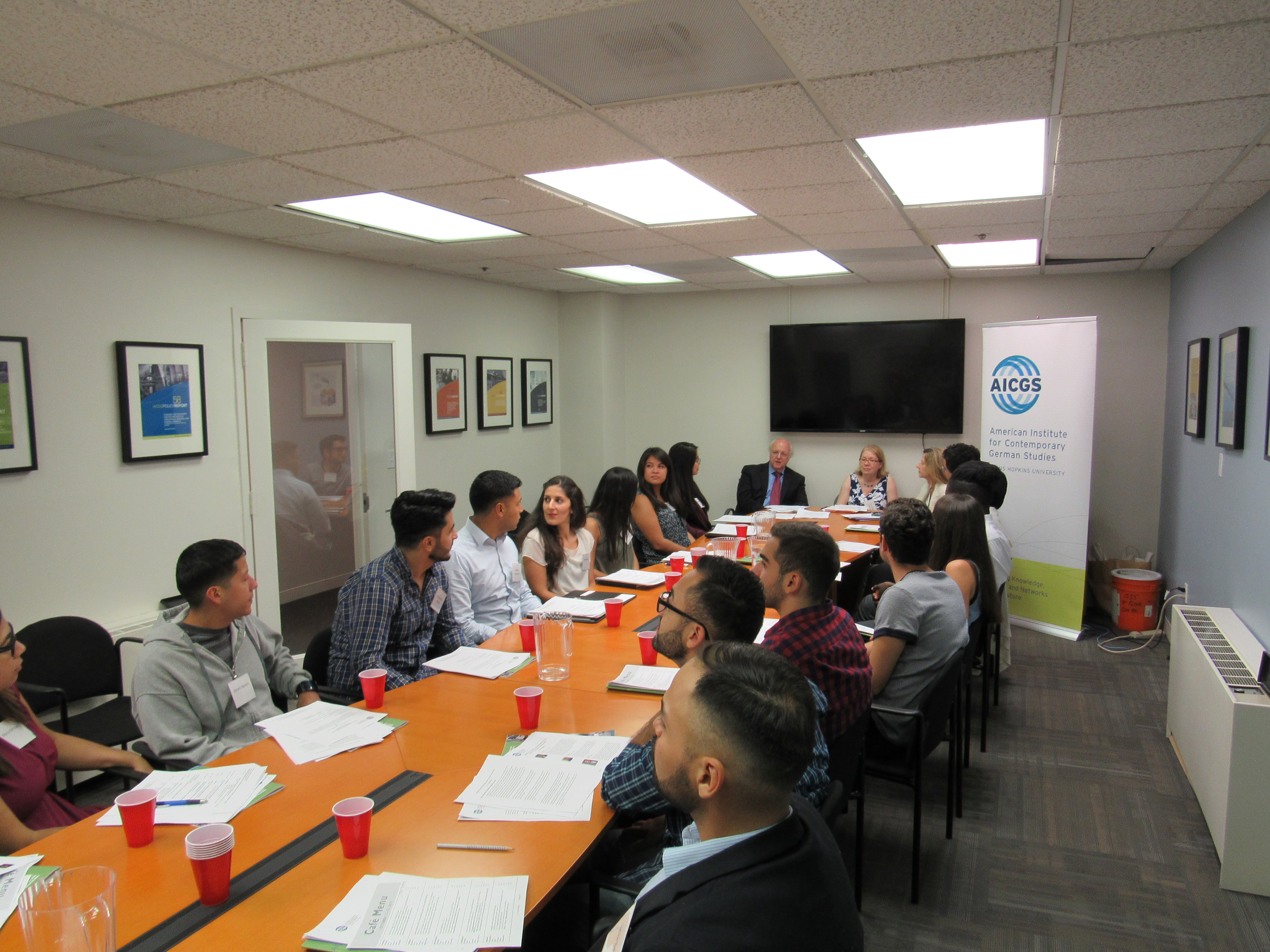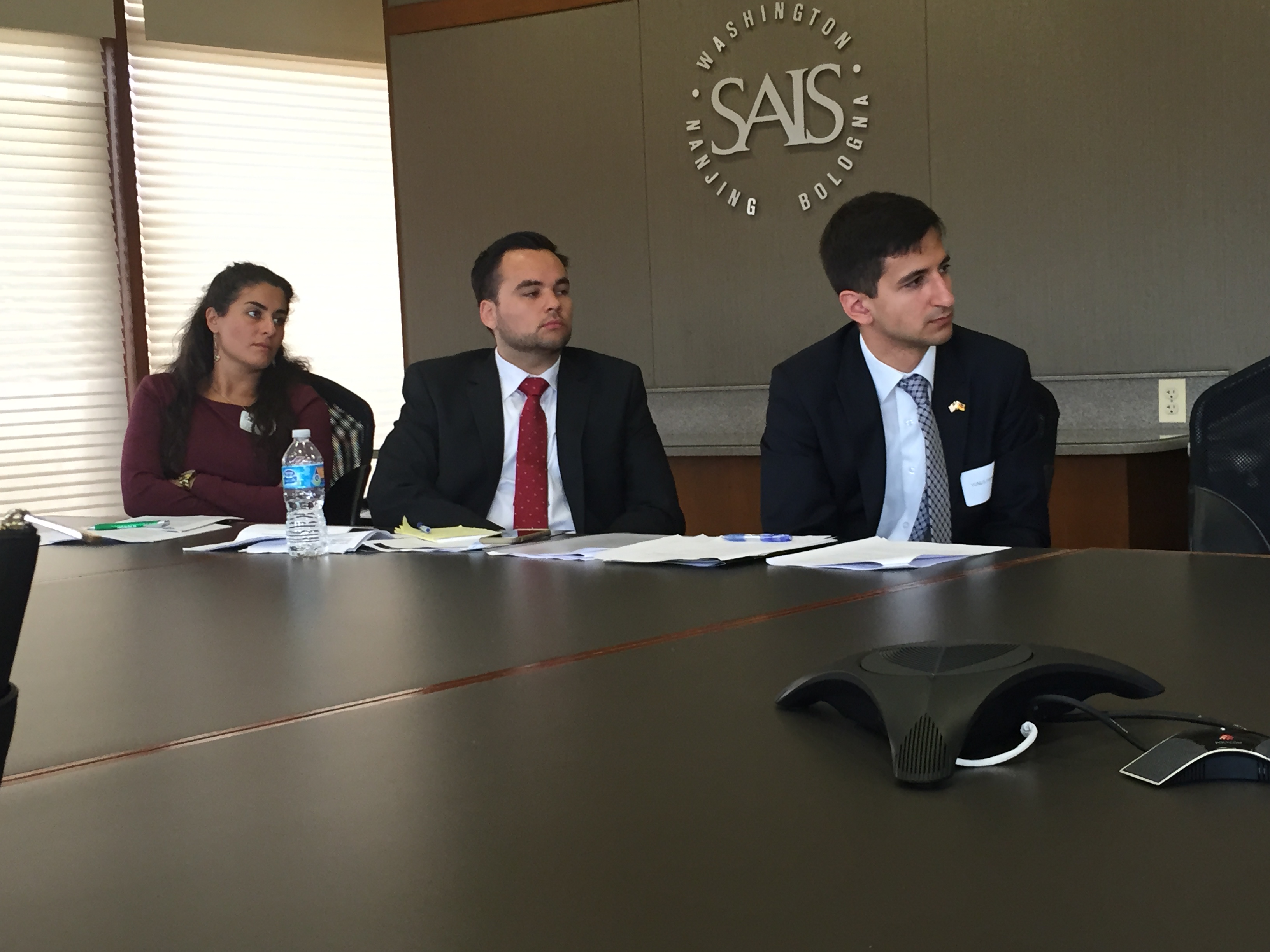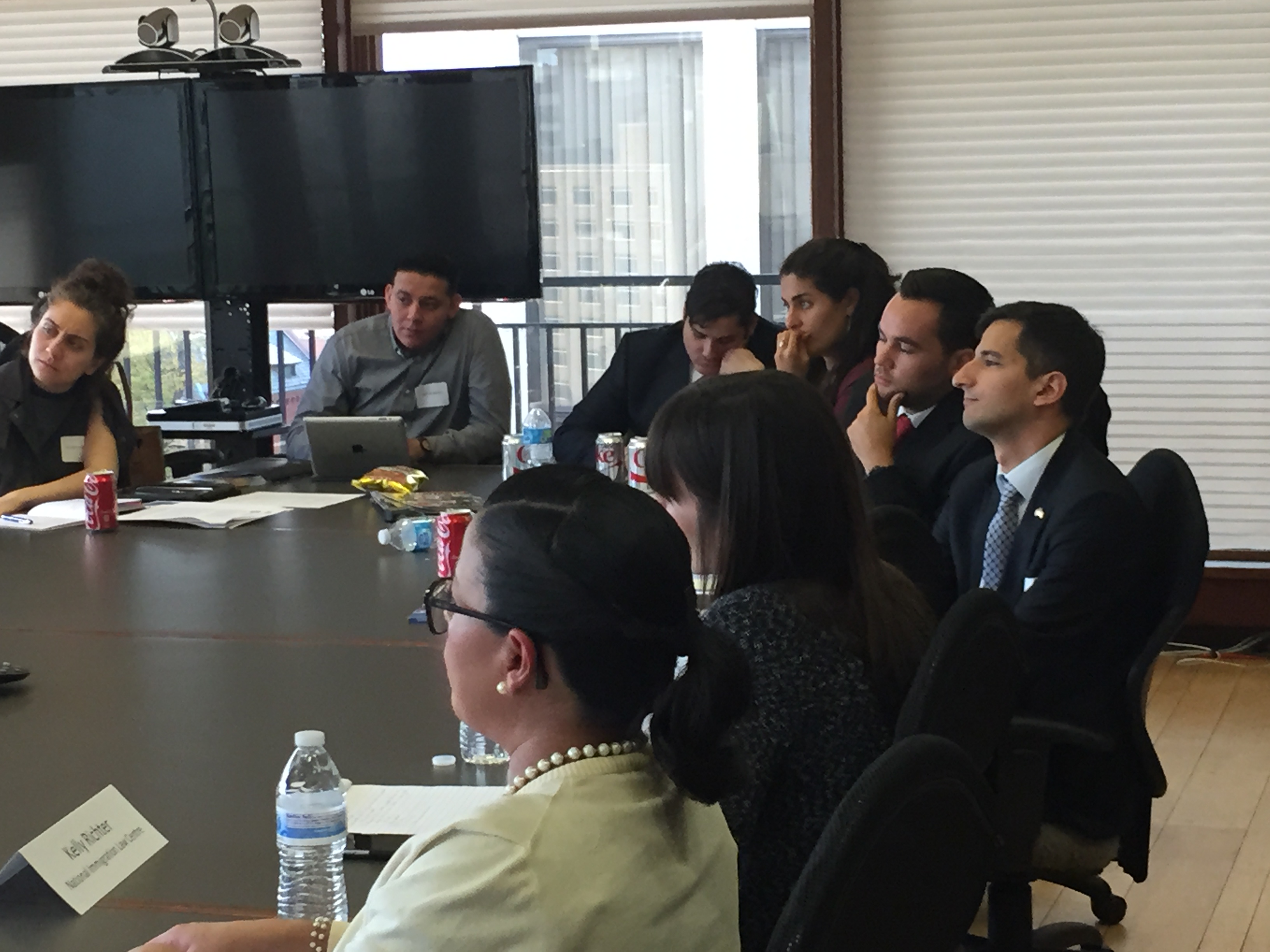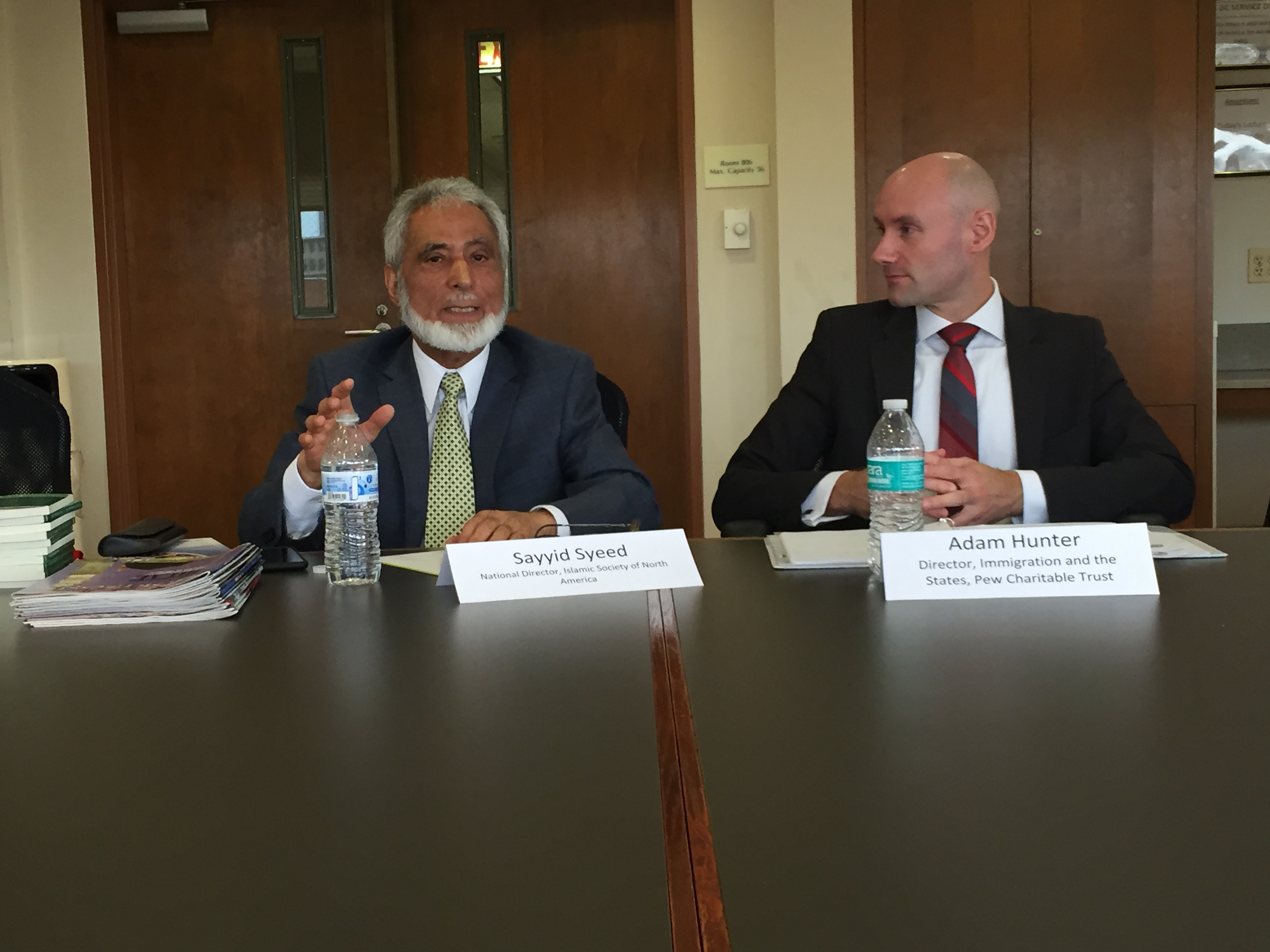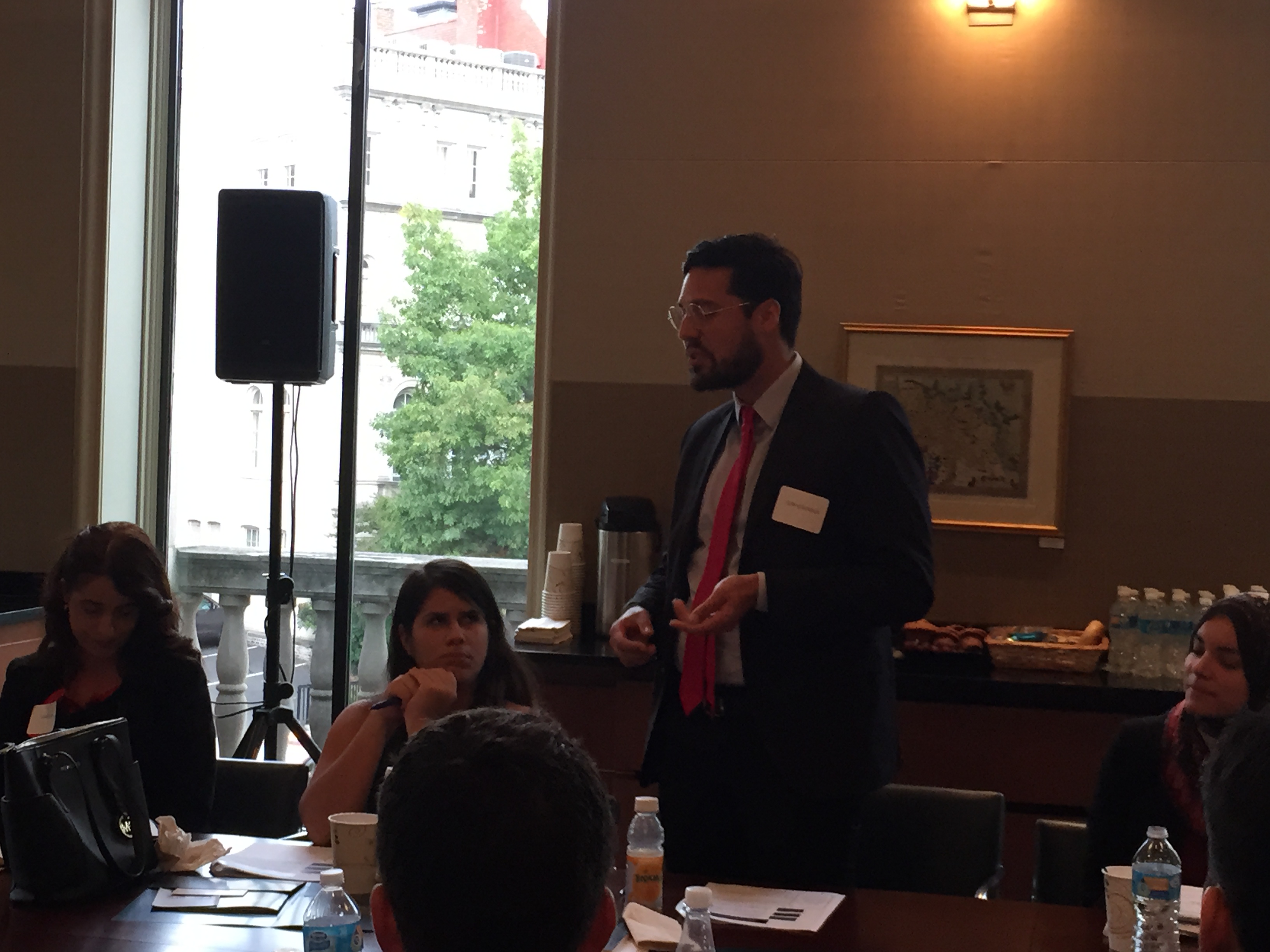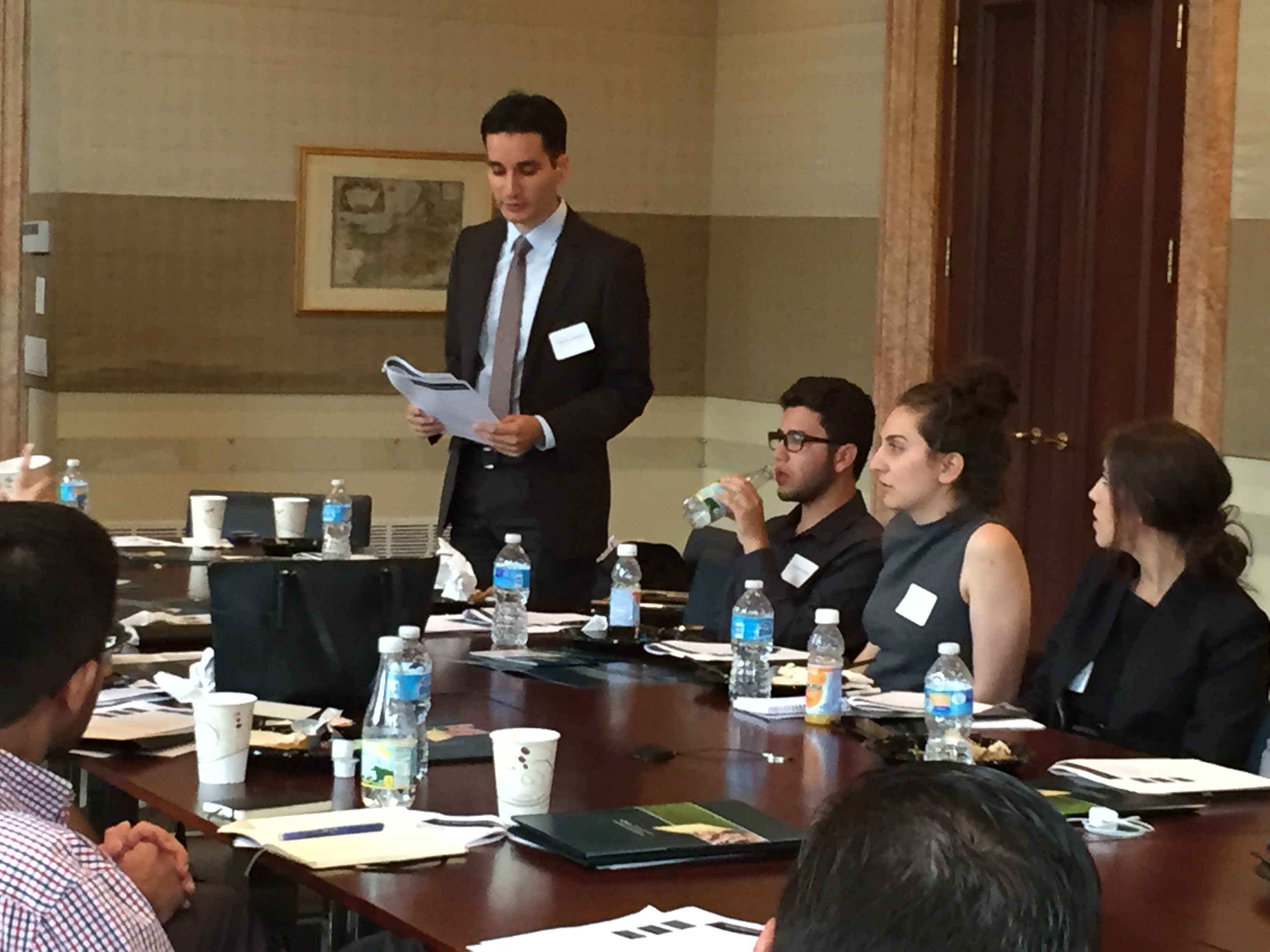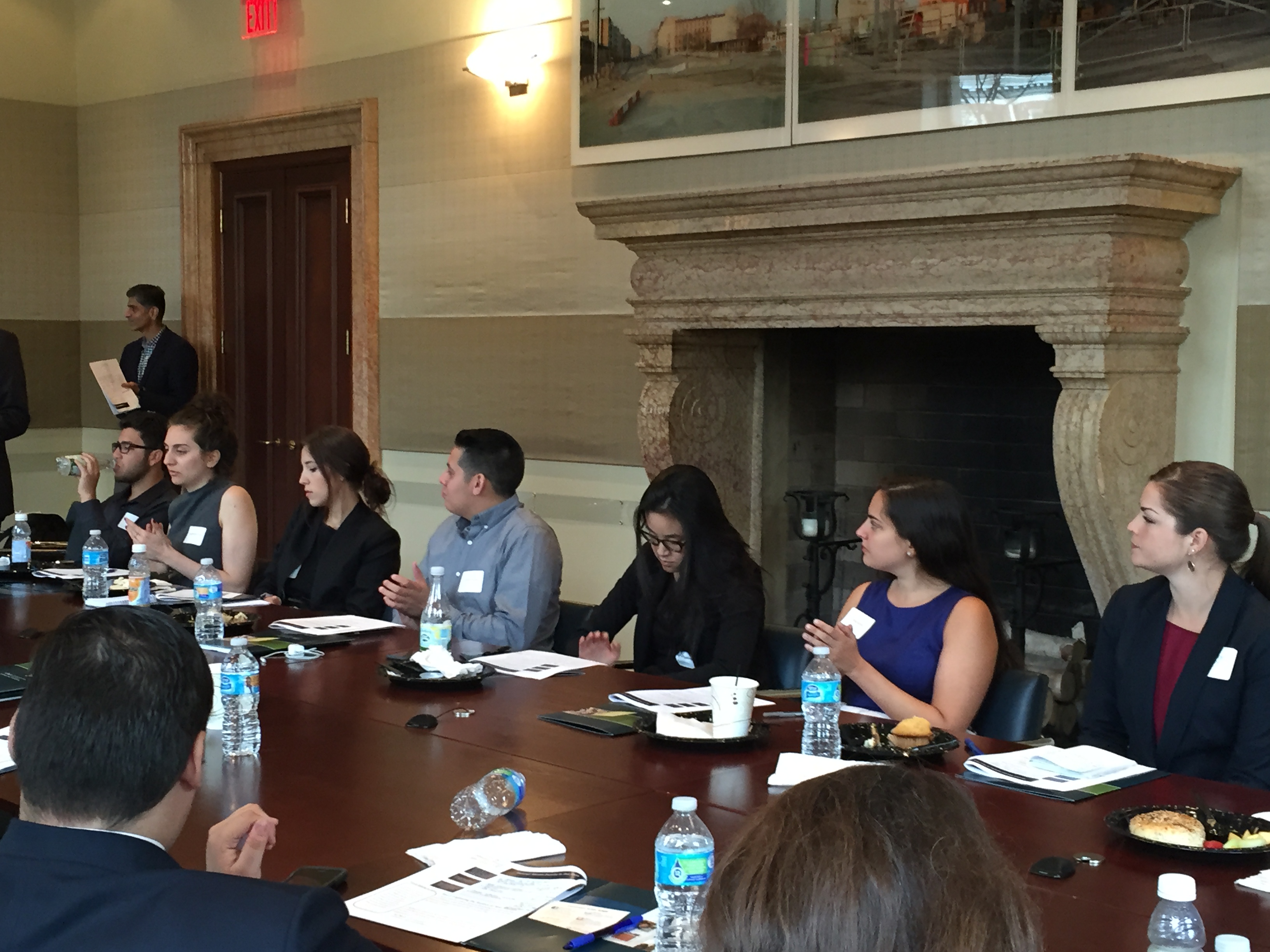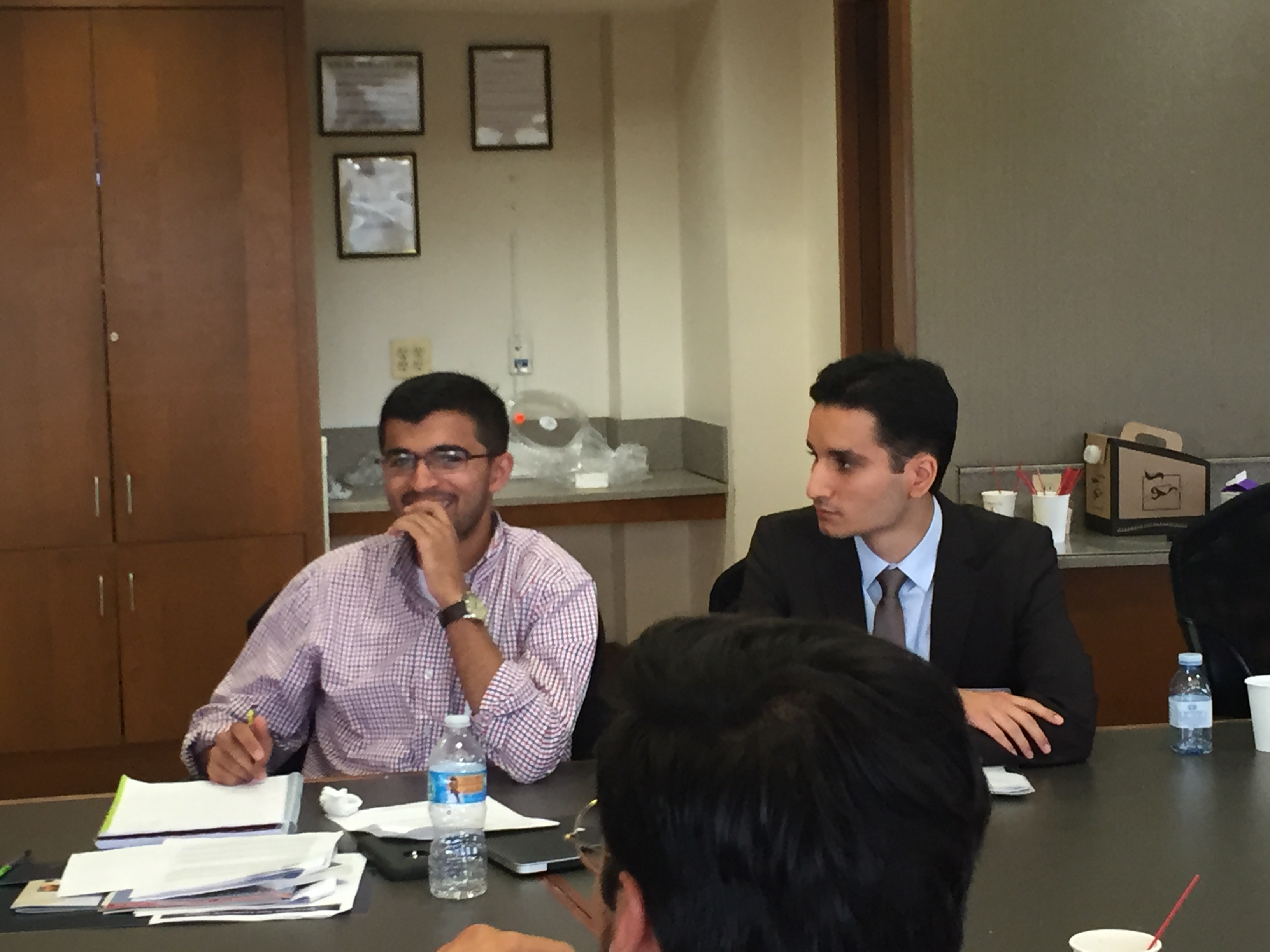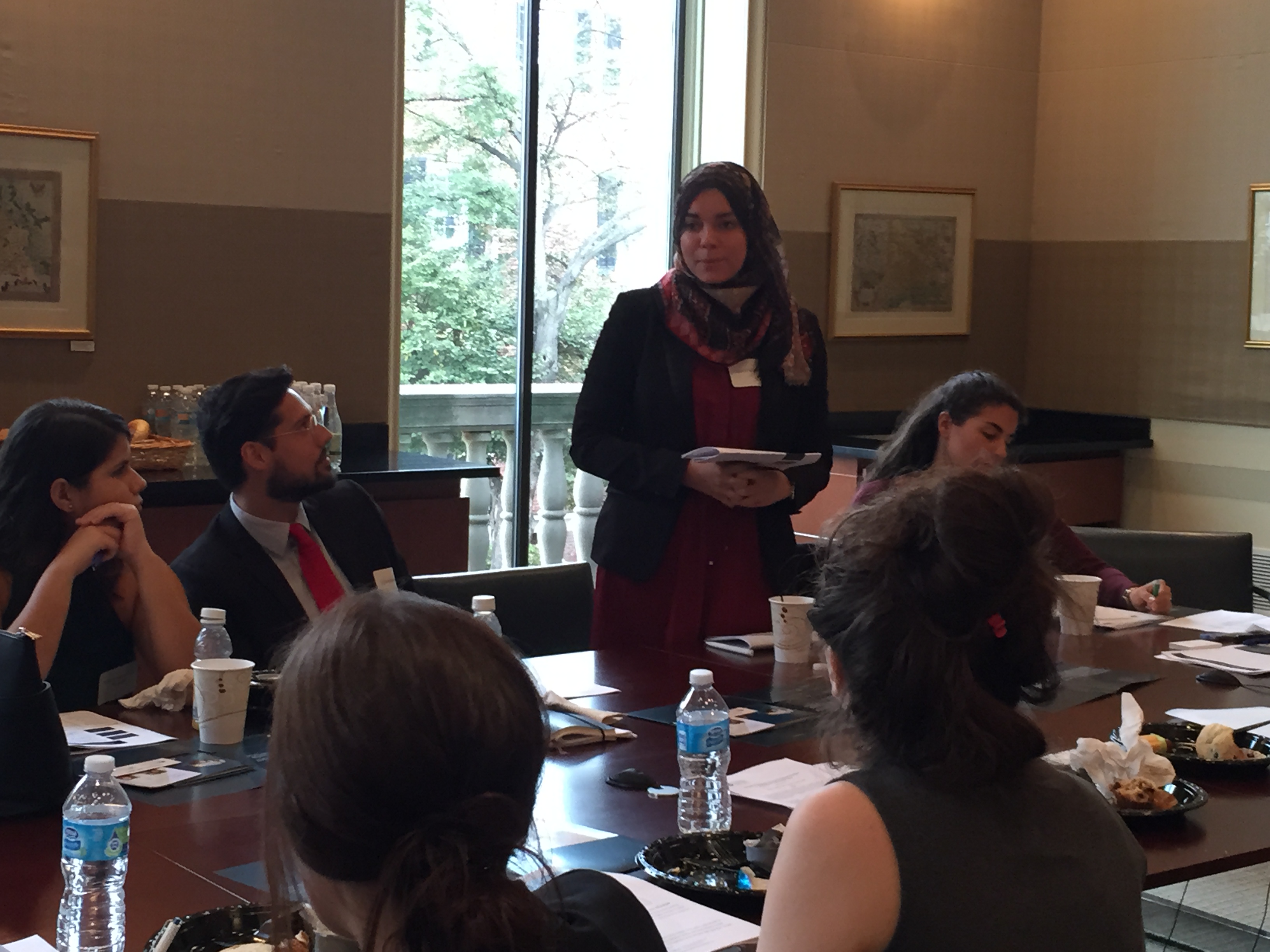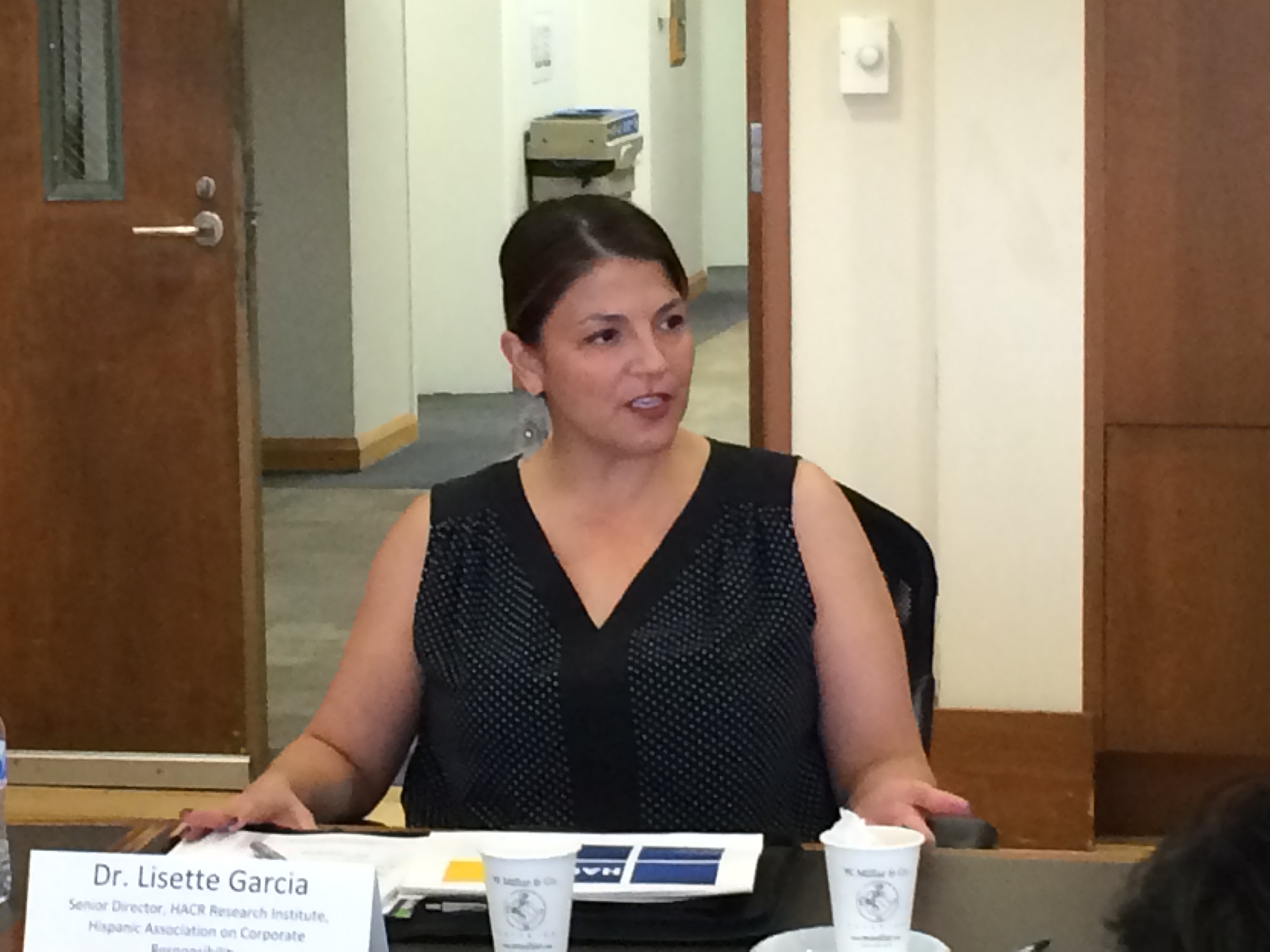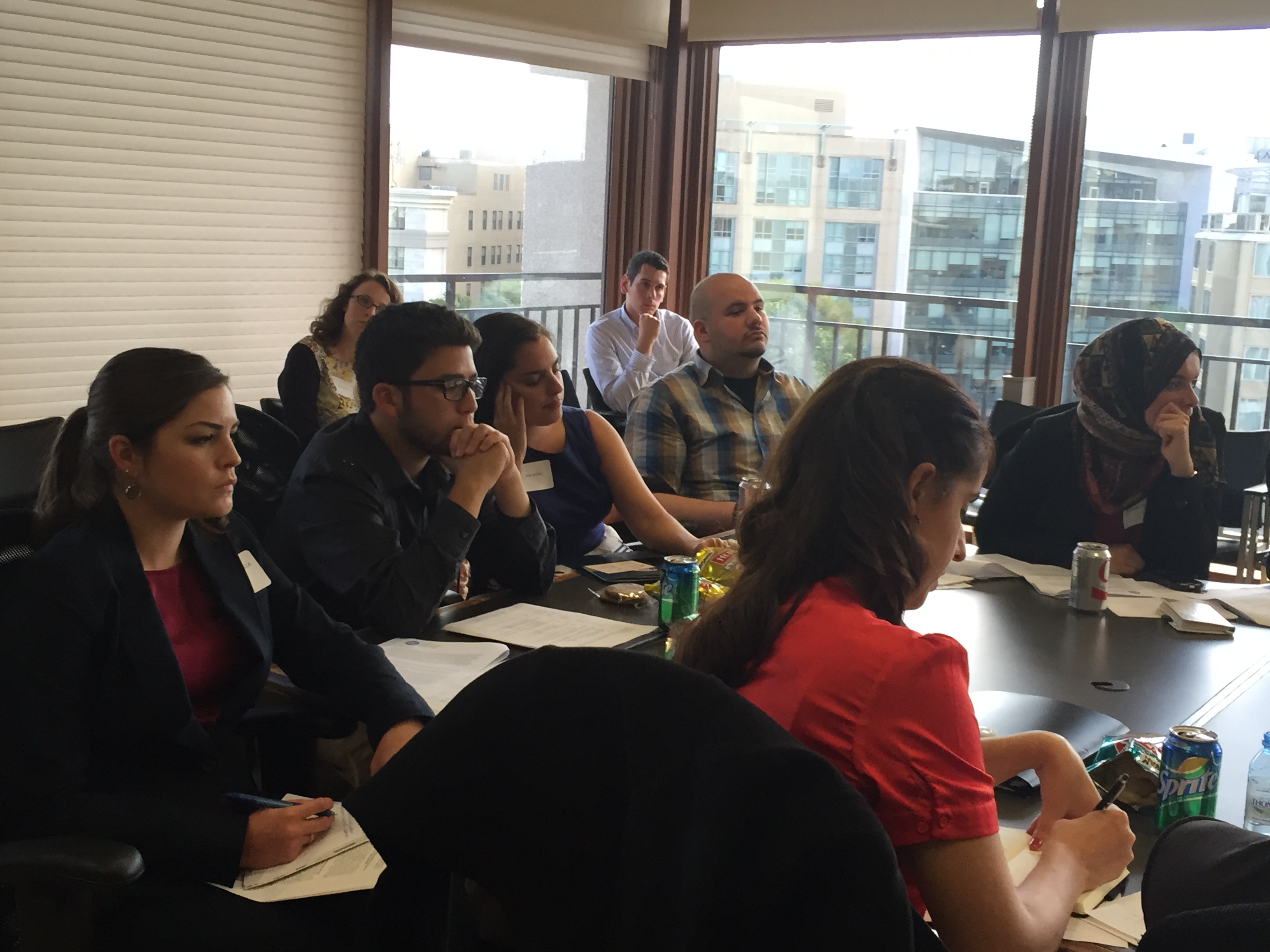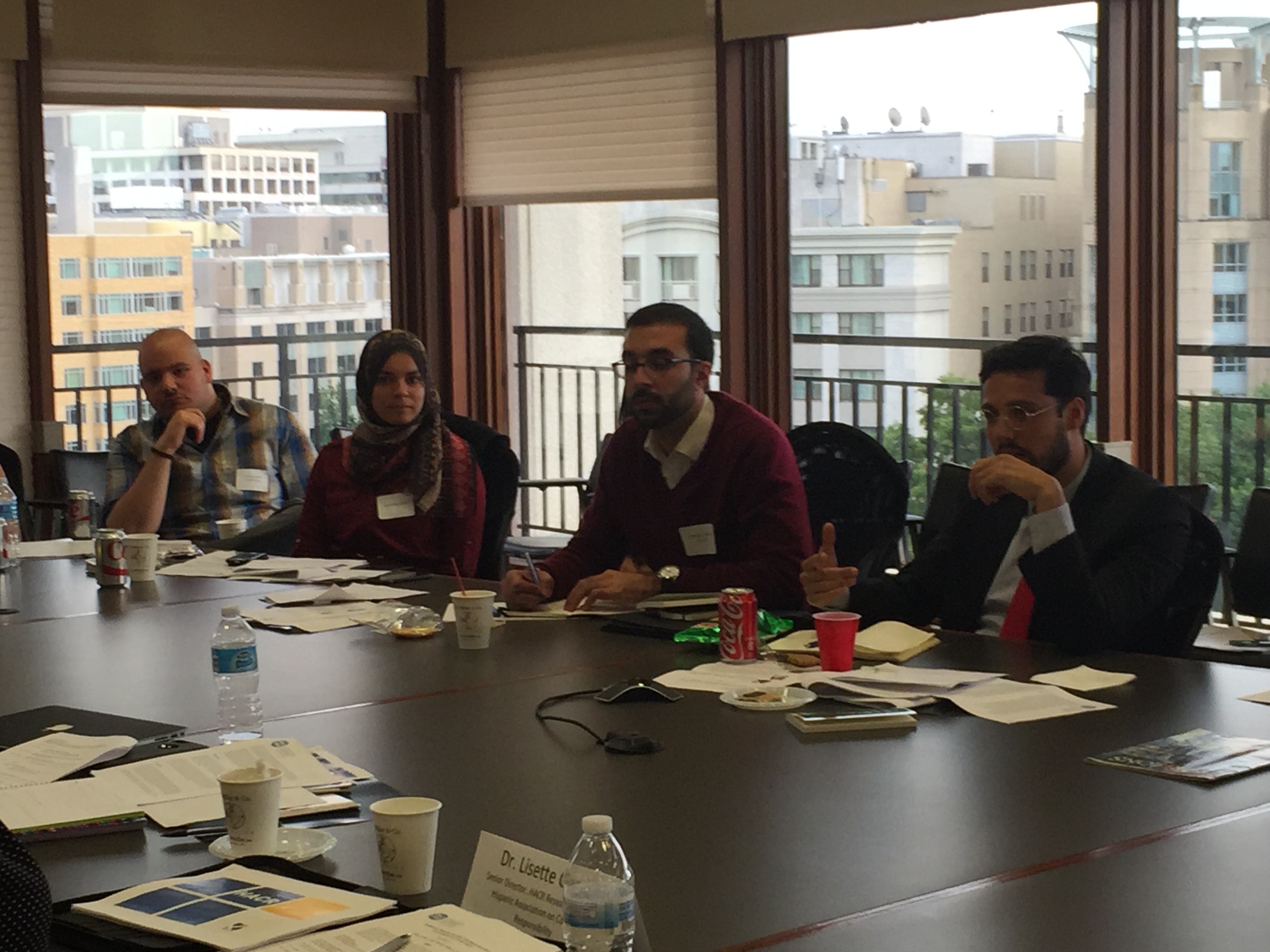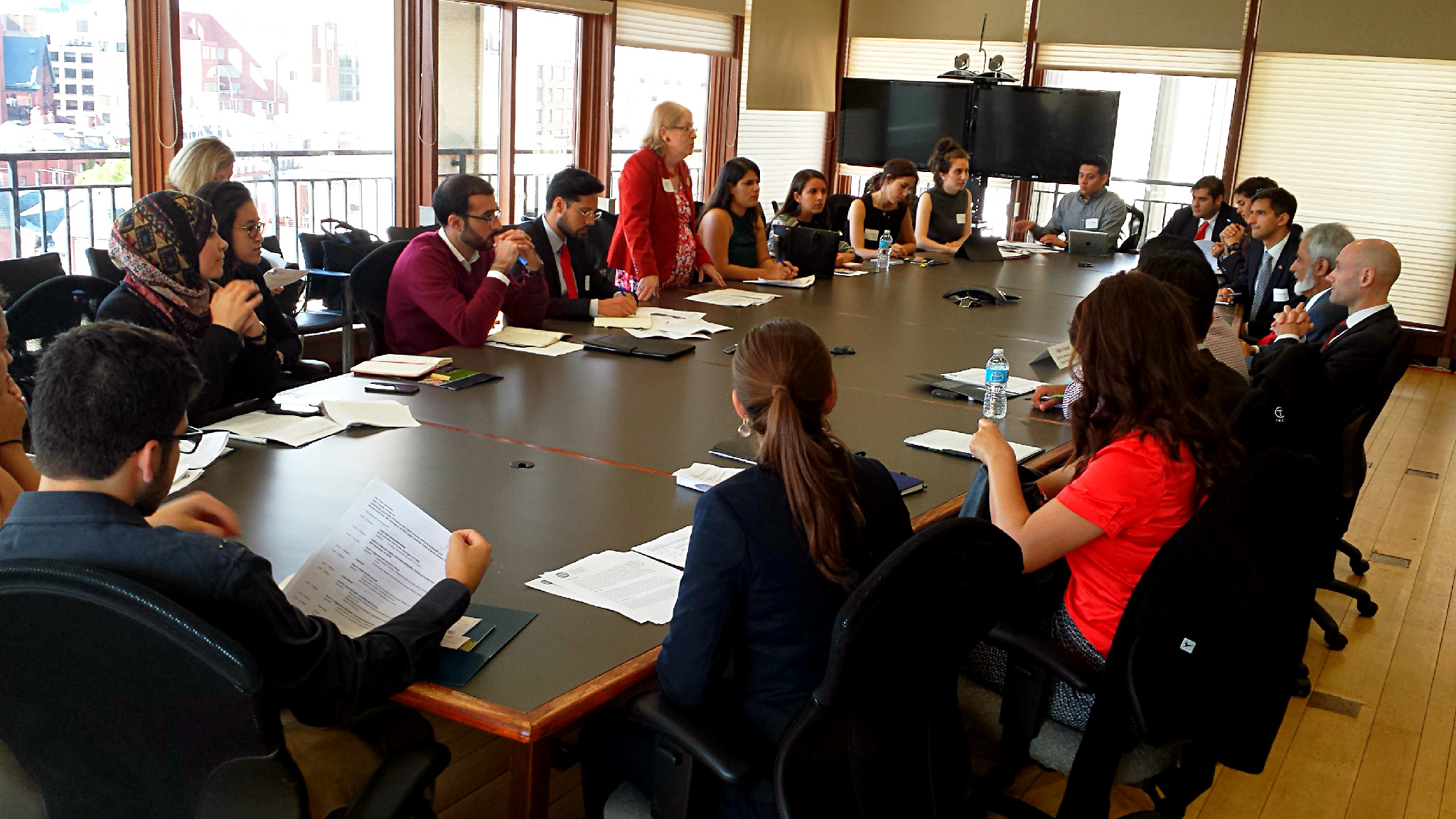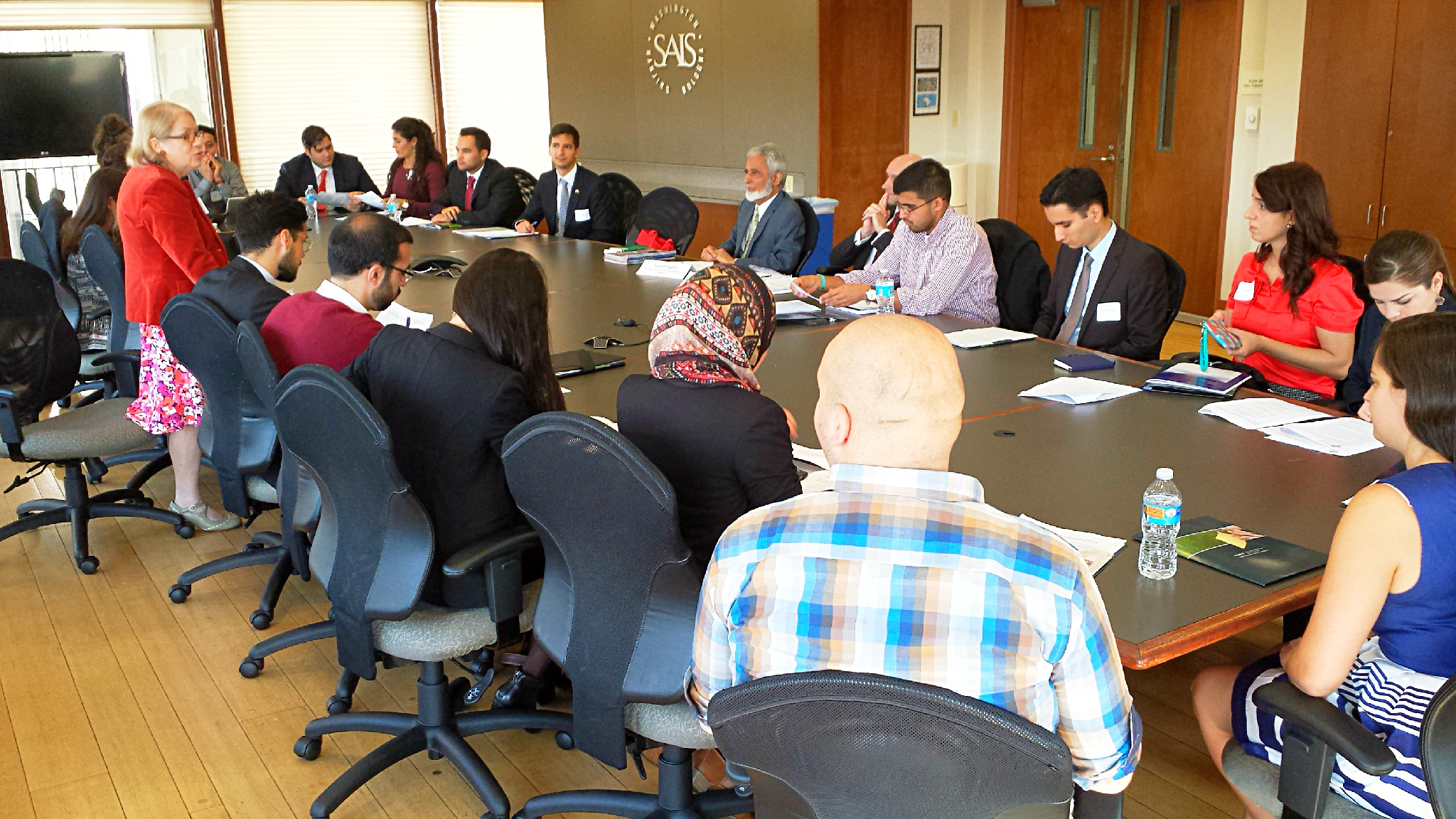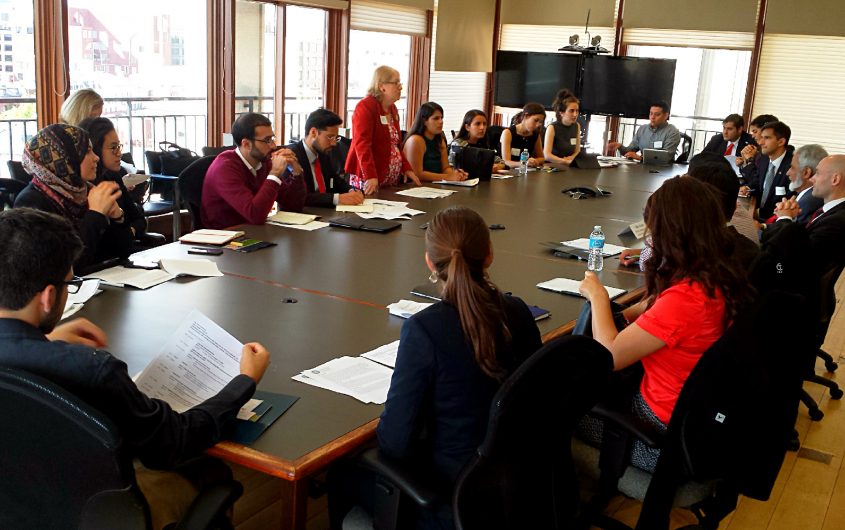
AICGS
Immigration, Integration, and a New Transatlantic Generation
The first panel included the Director of a Pew Charitable Trust project on Immigration and the States Adam Hunter and the National Director for the Islamic Society of North America Sayyid Syeed. The second panel was led by Kelly Richter, Executive Action Policy Fellow at the National Immigration Law Center, and Liliana Ranon, Associate Director, AAPI & Latino Affairs in the Office of Intergovernmental & External Affairs at the U.S. Department of Health & Human Services. The third panel discussion was conducted by the Director of Curriculum and Instruction at the Washington English Center Mary Spanarkel and Senior Advisor to Bellwether and former DC Deputy Mayor of Education Victor Reinoso. The fourth panel was led by Dr. Lisette Garcia, the Senior Director of Hispanic Association on Corporate Responsibility (HACR).
Panel 1: Integration and Immigration Issues
The participants were especially interested in Islamophobia in the United States. Panelists gave examples of how Christian and Jewish communities spoke out against the animosity toward Muslims and shamed anti-Muslim rhetoric. To deal with Islamophobia, they explained, it is important to band together and communicate with other communities, because communication is the means to resolve fear and misunderstanding. Integration can also come from within, for example, when an organization only employs imams that speak English and have lived in the country for at least a few years. The discussion also shifted from the practice to the policy. In today’s environment, those involved in policymaking regarding immigration see more initiatives and activities at the state and local levels while the federal government takes longer to implement its policies. Because of this, much policy work is now focusing on these lower levels of government rather than the federal level so that local and state governments can be as informed as possible before making policy decisions on immigration.
Panel 2: Public Health and Law
In this discussion, it was clear that the two topics of public health and law were closely intertwined, especially with regard to the undocumented community. Panelists addressed the resources available to provide for the mental health needs in the Latina/o community stemming from gang violence and effects of immigration. Part of the ten essential benefits of the Affordable Care Act (ACA), mental screening gives the immigrant community access to such services. There are services that focus on behavior health, educating immigrant communities about the importance of mental health, and the importance of discussing these issues that affect an individual’s well-being with the immigrant community. Many of the participants asked about what immigrants who are afraid because of their legal status can do about receiving health care. Ms. Ranon discussed the vital role of community health centers, which provide care regardless of status if people do not have access to government-provided care. The discussion also led to comparisons between the European refugee crisis and illegal immigration in the United States. The women and children coming from Central America are put in jail-like conditions when they arrive in the United States, due to the painstaking administrative and judicial process. Part of the problem is the overloading of the immigration court systems. Increasing the number of judges who deal with immigration cases would fast-track the process.
Panel 3: Teaching English and Bilingual Education
Most of the discussion centered on how one’s native language is an important part of an individual’s cultural identity, and that it should be protected, not silenced, in the education system. One participant raised the issue of family support for English-learners. Parents play a huge role in influencing their child’s attitude in school. Many immigrant parents resent the popular English immersion programs, because they phase out native languages, which are a source of pride. Bilingual schools allow students to retain and advance their native language, while also improving their English or German. Another large segment of the discussion was devoted to an exploration of racism in the United States and Germany, and how language plays a powerful role in perpetuating negative stereotypes. The way the government controls language and culture, it was argued, is through schooling. The main takeaway is that bilingual education is far more effective in terms of integration and immigrant attitude. Research supports bilingualism, which is proven to help cognitive functions. The main inhibitor to more bilingual programs is fear. People fear what they do not know, and that includes foreign languages.
Panel 4: Integration in Business: Corporate Responsibility
The discussion focused on how to incorporate minorities in the corporate sector by both encouraging companies to hire more diversely and encouraging young minorities and immigrants to aspire to work in the corporate world. Many companies have community service projects and chapters in various cities around the country that can come into schools to motivate and inspire children of immigrant communities. The commitment to diversity and being honest during the representation assessment within companies are important because the Hispanic/Latino community is the fastest growing population in the United States. A lot of companies say they support diversity but do not commit to it consistently. Additionally, it was stressed that the leaders of the company should be vocal about their support for a diverse workforce so that the commitment to diversity trickles down to all levels of management. Currently, statistics show middle-level management is hindering the representation of minorities in corporate America.
Photos
Location
AICGS
1755 Massachusetts Ave, NW Suite 700 Washington, DC 20036 United States



